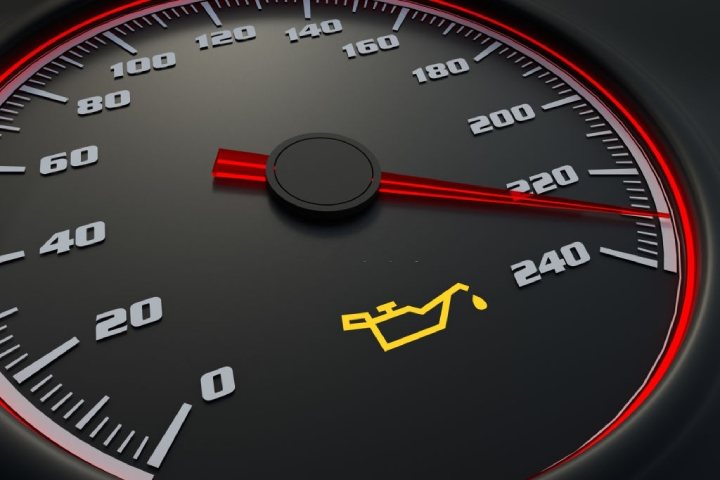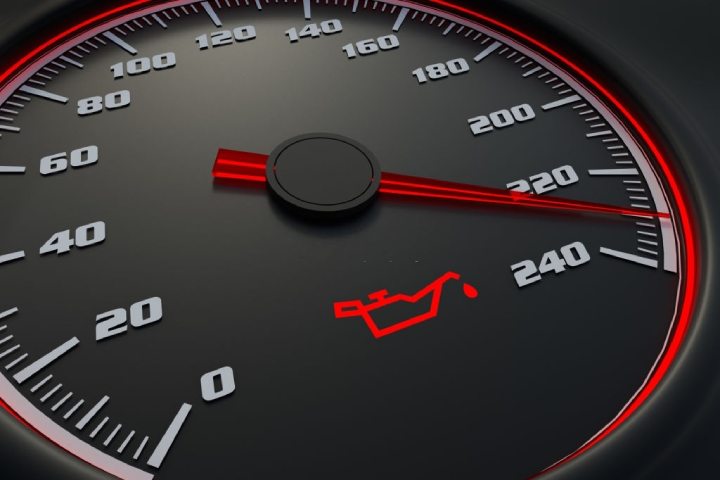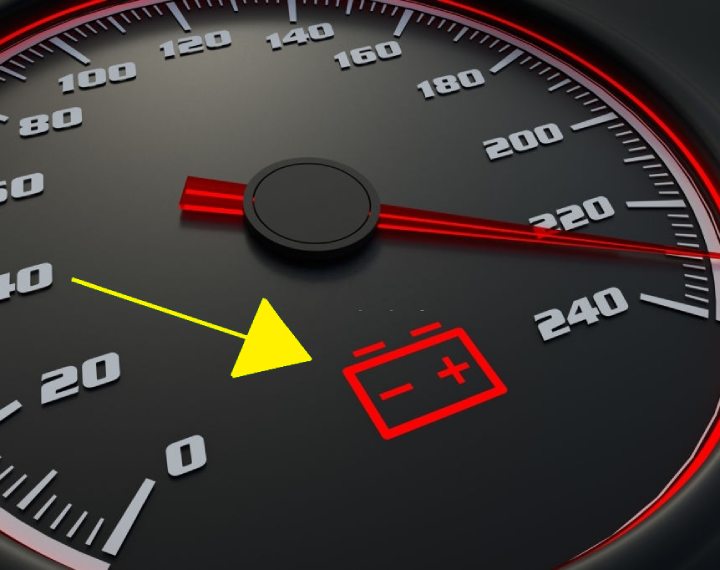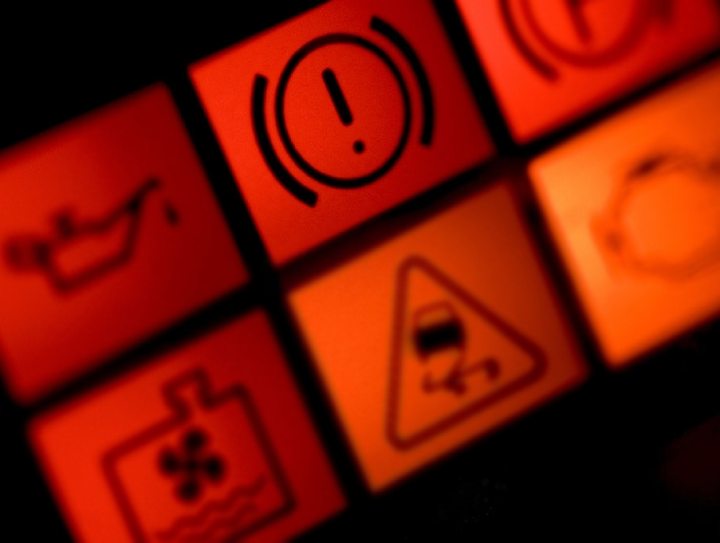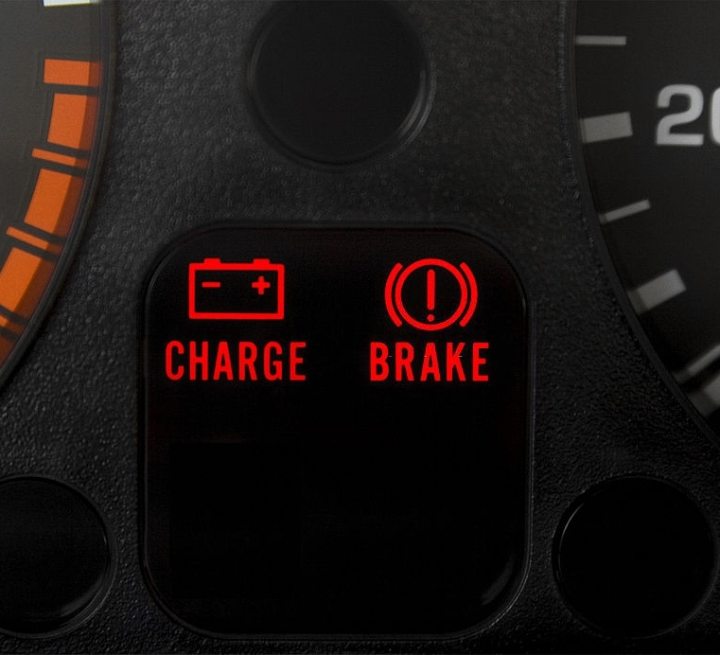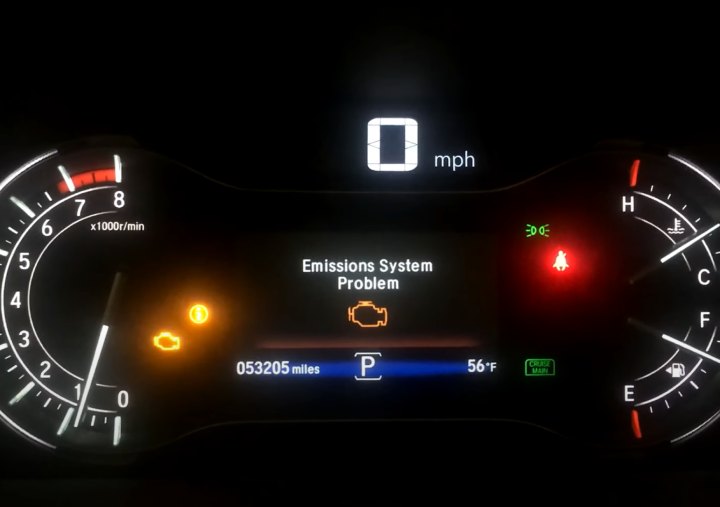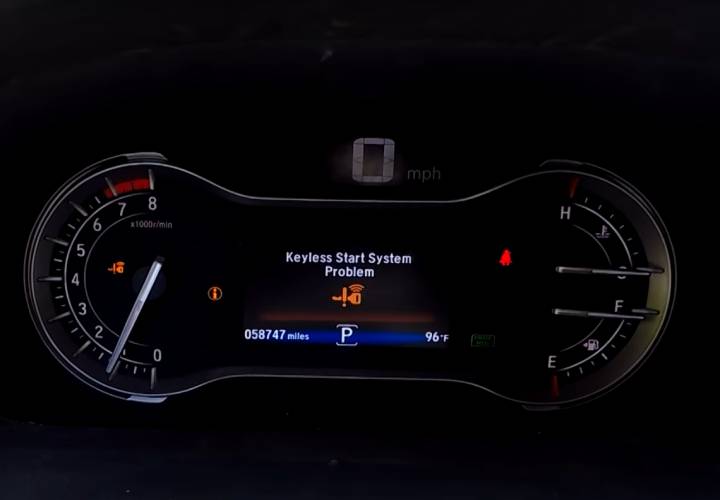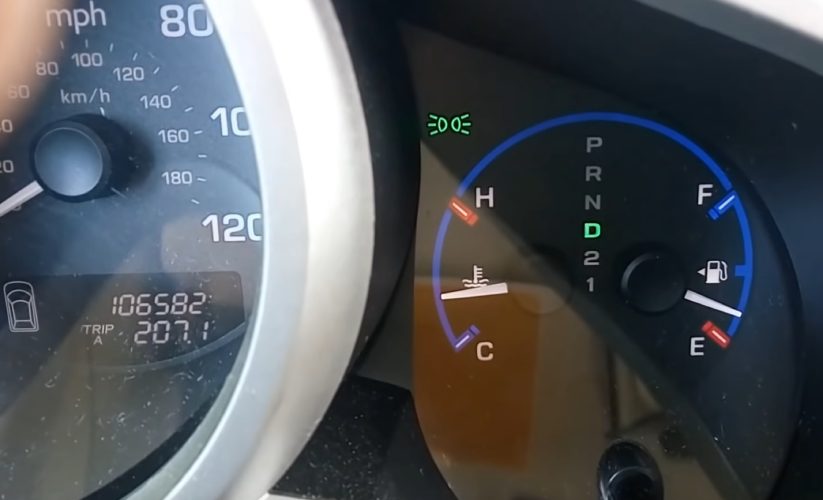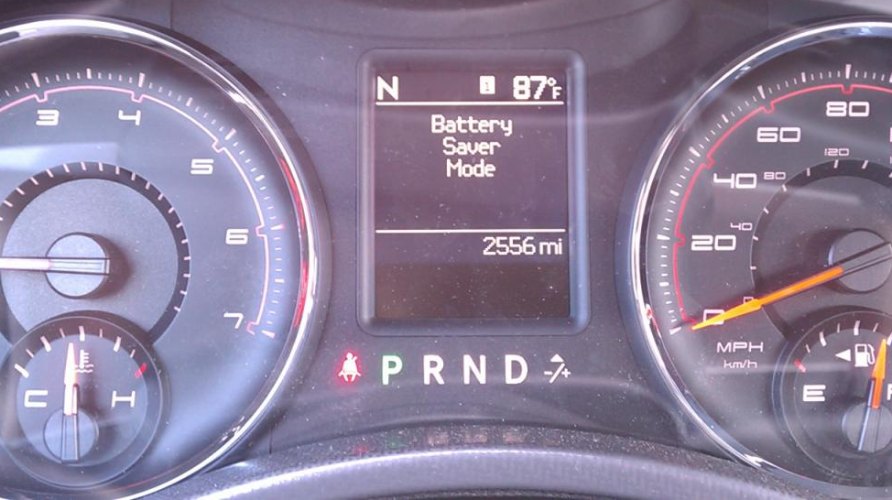Have you ever seen the “Check Charge System” warning on your Honda Accord’s dashboard? It can catch you off guard and make you wonder what it means. As a Honda owner, this error message is one that many people dread seeing because it could be pointing to an electrical issue with their car.
In this article, we will break down what Check Charge System means for your Honda Accord and explore some possible causes for this warning light to come on.
- Honda Accord Check Charge System: What Does It Mean?
- Common Causes Of Charging System Problems
- How To Fix the Honda Check Charge System Warning
- How To Reset The Check Charging System On A Honda Accord
- Can I Drive With A Charging System Warning Light?
- Frequently Asked Questions
- What Is The Typical Cost To Repair A Charging System Problem In A Honda Accord?
- Can A Faulty Battery Cause A Check Charge System Warning?
- How Often Should The Charging System Be Inspected On A Honda Accord?
- Is It Safe To Jumpstart A Honda Accord With A Charging System Warning Light On?
- Can A Damaged Alternator Belt Cause A Check Charge System Warning?
- Closing Thoughts
Typically, this sort of alert pops up when there are issues like low voltage or high resistance within the charging system. If you read our post addressing the Check Charging System Warning on Ford Explorer, you will find out that the possible causes are similar. By understanding what triggers these warning lights, we can help avoid costly repairs later on and ensure our Hondas run smoothly on the road ahead.
Honda Accord Check Charge System: What Does It Mean?
A “check charge system” warning message on your Honda Accord indicates a problem with the car’s charging system. The most common causes include a bad battery, a faulty alternator or a loose battery connection.
If this message appears while you’re driving on the road or already hit with issues such as slow cranking, delay no further. Take necessary precautions before attempting any jumpstarting procedures because it could be dangerous if not sorted as soon as possible.
Common Causes Of Charging System Problems
If you’re experiencing issues with your car’s charging system, a few common causes could be contributing to the problem. Here are some of the things to look out for:
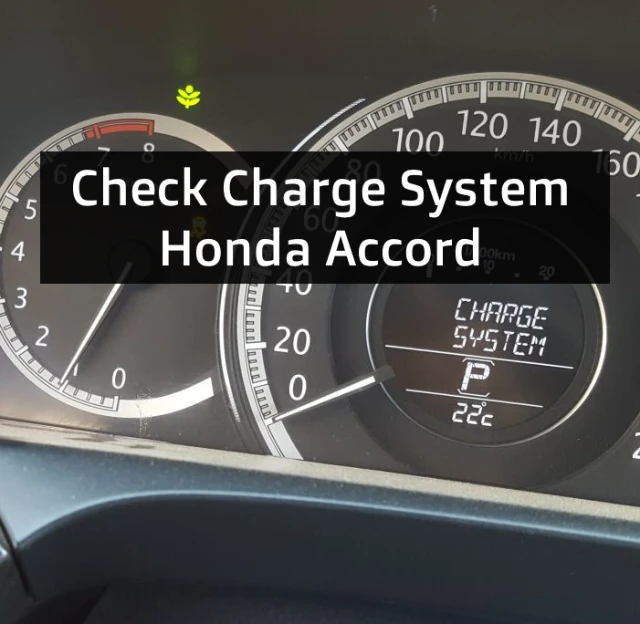
- A faulty battery: Batteries don’t last forever, and after a while, they may begin losing their ability to hold or charge properly.
- Alternator belt damage/wear-and-tear: The alternator belt is responsible for driving the alternator- which in turn charges up your vehicle’s battery- so if it becomes worn out, stretched, or damaged over time, it can cause problems on this front altogether.
- Corroded Battery Terminals: If corrosion builds up on the terminals (where cables connect), this affects the proper connection between a power source and electrical components resulting in slow starting or declining performance.
- Electrical System Load: If you added any extra speakers or interior LEDs, this might put a strain on your electrical system and result in a warning.
- Accessories Belt: A slipping or loose belt might result in poor energy transferred between the alternator and electrical accessories, resulting in a charging system problem.
- Malfunctioning Voltage Regulator: Sometimes, due to wear & tear beyond the internal limit, the voltage regulator fails, sending more voltage than permissible, resulting in a charging system warning.
Let’s see some of the symptoms that indicate possible faults with any of those components and how to fix them.
01. Dead or Weak Battery
A bad battery may be the cause of your charging system problems in a Honda Accord. Over time, batteries lose their ability to hold a charge and may not be able to provide enough power to start the engine or run accessories like lights and radio. This can cause the alternator to work harder than it should, which can lead to its failure.
Older batteries are more prone to issues caused by corrosion and other forms of wear that can reduce their performance over time. If your battery is beyond repair or has reached the end of its useful life span, it may need replacement sooner rather than later.
To prevent issues related to a dying battery in your car, you should ensure that all electrical components are switched off while parked, as they tend to drain out the charge from batteries.
You could also regularly check the battery so that any problem concerning low voltage could be detected instantly. Get yourself a multimeter tool and check the voltage. It should always read around 12.6 volts with the engine is off and 13.5-14.5 when the engine is running.
02. Faulty Alternator
Another possible source of the problem can be a problem with the alternator. An alternator generates energy from mechanical energy produced by drive belts powered by Engine Crank Shaft into electrical energy, which results in a recharge process for the battery.
There are several reasons why an alternator might not charge the battery properly, including worn-out bearings within their moving parts, damage in winding areas, etc. It’s important that when this happens, it gets looked at quickly because otherwise, the low voltage supplied would not only lead to detrimental effects towards an array within the electrical system but will automatically result in draining the battery.
You should have a mechanic check the alternator, so any anomalies/damage can be spotted quickly before serious repercussions occur.
03. Loose or Corroded Connections
Over time, the connections in the charging system of the Honda Accord can loosen due to vibrations caused by driving long miles. In addition, corrosion and rust could accumulate on electrical contacts, which makes it hard for the charge to flow smoothly via the circuit.
Loose or corroded connections reduce the efficiency and performance levels that a charging system should generate, resulting in low voltage presence within the battery, causing issues like non-starting conditions, continuous blinking of headlights, etc.
You might need professional help to inspect your charging system. Otherwise, you could perform routine maintenance regularly at home, like cleaning corroded parts and checking the tightness of wires to rectify any issue quickly before more damage is done.
04. Electrical System Load
The more electrical loads there are on a Honda Accord’s battery or alternator, such as heavy sound systems, additional speakers installed in the car would lead to excess load requires times higher power supply, thus decreasing efficiency with which energy was initially generated thereby making Engine become overused & overheated.
This excessive demand causes increased strain on already working charging system components resulting in premature failure. It could also cause other devices linked to being affected, such as headlights not functioning perfectly well when audio is being played excessively loud.
To avoid similar issues relative high powered loads upon the battery, it’s highly recommended that you assess if your vehicle can handle them before installing them. The next ideal step would be ensuring they are switched off immediately after use.
05. Belt Problems
The accessory drive belt powers the alternator of the Honda Accord, and if it is faulty, charging system problems may occur. If the belt is damaged, loose or misaligned tensioners might cause insufficient energy to be transferred, directly impacting the battery’s performance.
Due to normal wear & tear, belts, over time, can develop a crack which results in breaking. This negatively affects the car’s battery as it is not sufficiently recharged.
To prevent future incidents, you should perform maintenance checks recommended by your owner’s manual, such as checking for signs like cracks on the accessories belt every once in a while so that appropriate action can be taken early before the problem accentuates any further.
How To Fix the Honda Check Charge System Warning
After learning about what commonly causes issues with charging systems, it’s essential to understand how the “check charge system” message in a Honda Accord affects your vehicle. Essentially, this warning light signals an issue with the battery or alternator, meaning that your car’s electrical components cannot get enough power.
For those who like to visualize the step by step guide, here’s a very good video detailing the process:
If you see this message on your dashboard, we highly recommend taking your car to a mechanic right away for a proper diagnosis and repair. An expert can inspect everything thoroughly and determine whether it’s something as manageable as a loose wire or lousy battery connection- or more severe like a failing alternator belt. Ignoring this warning could cause further damage throughout the charging system – including voltage regulators and rectifiers- resulting in costly repairs down the road.
To sum up, if you see “check charge system” lighting up on your Honda Accord’s dashboard, don’t brush it off! Take advantage of an experienced mechanic who knows all these types of problems. Not paying attention could lead to dire consequences where highly-priced fixes would be needed later on.
In the next section, we’ll go over how resetting the check charging system light works after making necessary repairs.
How To Reset The Check Charging System On A Honda Accord
If you’ve determined that there isn’t any underlying cause triggering the check charge system light, resetting it can be done relatively quickly by following simple steps.
One way of doing so is to disconnect and reconnect the negative cable from your vehicle’s battery. Alternatively, you can use an OBD-II scanner tool to clear stored error codes.
Remember: driving around when you have a faulty charging system or dead battery can damage your electrical system, leaving you stranded and facing costly repairs down the line. If you ever need help with how exactly to reset this warning message, seek professional help immediately!
Can I Drive With A Charging System Warning Light?
Although it might still be plausible to drive around when this warning message is active in some instances, we do not recommend it as it implies an underlying issue requiring the attention of expert mechanics. Ignoring this warning could result in further damage done to other electrical components of the vehicle- eventually leading you toward costly repairs down the road.
Frequently Asked Questions
What Is The Typical Cost To Repair A Charging System Problem In A Honda Accord?
Repairing a charging system issue in a Honda Accord can cost different amounts depending on how big the problem is. Fixing an alternator or battery costs between $200 to $500, which is cheaper than replacing other parts like voltage regulators or wiring.
These more complicated repairs can be over $1000. To avoid expensive charges later on, car owners should check their charging system regularly and fix any issues immediately.
Can A Faulty Battery Cause A Check Charge System Warning?
A faulty battery can cause a Check Charge System Warning in your Honda Accord. However, it is not the only possible cause of this warning. As discussed already, issues such as a bad alternator or damaged wiring could also result in this warning message appearing on the dashboard.
It’s important to have your vehicle inspected by a qualified mechanic to determine the root cause and necessary repairs to resolve the check charge system warning.
How Often Should The Charging System Be Inspected On A Honda Accord?
Okay, so here’s the deal: how often you should check out your Honda Accord’s charging system depends on a few things. If you’re driving in rough conditions (think off-road or extreme weather), if your battery has been around for a while, and how much you’ve been using your car lately.
Generally speaking, it’s best to get someone to give everything a check about once a year or when you hit 30k miles. That way, you can catch any issues before they turn into bigger problems down the line.
Of course, if anything seems off—like your lights are getting dimmer or it takes longer to start up—we’d recommend bringing that baby in ASAP just to be safe.
Keeping an eye on this stuff might not seem super important right now, but trust us—that little bit of prevention could save you a lot of time and money in the long run. So take care of those electrical components!
Is It Safe To Jumpstart A Honda Accord With A Charging System Warning Light On?
If your Honda Accord’s charging system warning light comes on, it might not be the best idea to jumpstart the car. Doing so could put some extra strain on a charging system that’s already failing or struggling, which could lead to even more damage to those electrical components.
Instead, we’d recommend getting your car looked at by someone who knows what they’re doing before trying any major trips or jumps like this. Neglecting this stuff now can make things worse down the line – you don’t want to deal with battery failure, an alternator meltdown, or other electrical issues if you can prevent them from happening in the first place!
Can A Damaged Alternator Belt Cause A Check Charge System Warning?
Yes, a damaged alternator belt can cause the check charge system warning to appear in your Honda Accord. The alternator belt helps to power your car’s electrical system, including the battery, and when it’s damaged or worn out, it can’t do its job correctly. This can result in various issues with the charging system, including power loss or even complete failure.
The severity of the problem will depend on the extent of damage to the belt and whether it has completely failed or simply become worn out over time. In some cases, jumpstarting the car may temporarily resolve the issue, but it is important to have the vehicle inspected by a qualified mechanic as soon as possible to prevent further damage from occurring.
Closing Thoughts
In conclusion, whenever the check charge system warning light comes on, there is a problem with the charging system. Most of the time, your battery is probably low. Therefore, sometimes this warning comes accompanied by the battery light too.
A bad battery is probably the easiest to fix, while a faulty alternator or a slipping accessories belt might result in a more costly repair. The cost to fix this problem can vary quite a bit, depending on the exact issue – anywhere from around $200 to $500 or more.
To avoid these problems popping up out of nowhere, getting your car checked once per year is generally recommended.
As for jumpstarting? Well, if there’s any sign of trouble in the charging system (like that light coming on), it might be dangerous to try and do so yourself. In cases like this, please leave it to the pros!
Sources
Statement by American Honda Regarding Battery Sensor Recall: 2013-2016 Honda Accord
How Much Does It Cost To Replace An Alternator?

